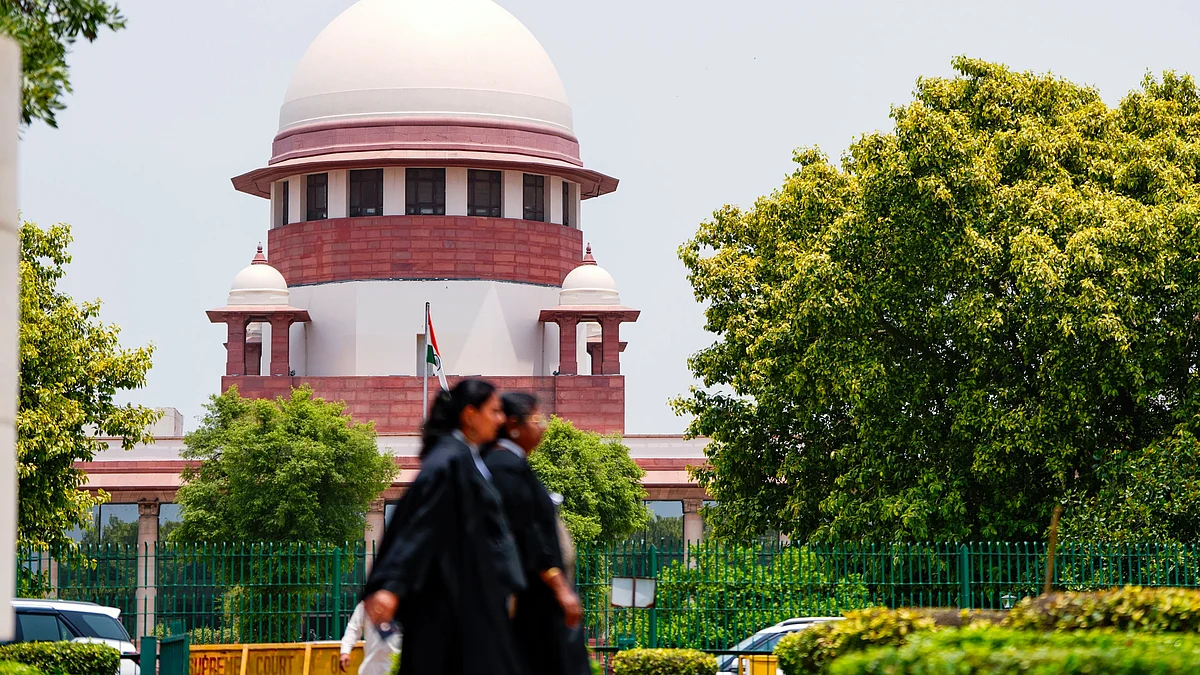High time courts revert to practice of day-to-day trials in sensitive cases: SC
Directs all high courts to set up committees to deliberate on issue for benefit of respective district judiciaries

The Supreme Court has emphasised that the long-standing practice of holding day-to-day trials, especially in sensitive matters, has been almost entirely abandoned and urged courts to return to it.
Highlighting that the right to a speedy trial is implicit in Article 21 of the Constitution, the apex court directed all high courts to set up committees to deliberate on the issue in earnest for the benefit of their respective district judiciaries.
A bench comprising Justices J.B. Pardiwala and K.V. Viswanathan observed that any attempt to revive daily hearings must take into account the present social, political and administrative climate, including the functioning of the police.
"The practice of conducting trials on a day-to-day basis more particularly in important or sensitive cases as was the tradition about thirty years ago has been given a complete go-by. We sincerely believe that it is high time that the courts revert to that practice," the bench stated in its order dated 22 September.
The ruling came in response to a plea filed by the CBI, which had challenged a September 2023 order of the Calcutta High Court granting bail to an accused in a rape case.
The bench noted that one of the key reasons behind delays in the justice system is the discretionary approach of holding non-continuous criminal trials. In such cases, evidence is often recorded in a "piecemeal fashion", stretching proceedings across months or even years.
"While limited judicial or court resources and a shortage of available court time due to the volume of cases are often cited for the use of this discretionary practice, the costs of non-continuous trials to both parties and to the justice system as a whole can far outweigh the perceived benefits," the order said.
The court accepted that trial courts do have the discretion to defer cross-examination but criticised the prevailing trend nationwide. "But we do not approve the practice prevailing in the trial courts across the country that the examination-in-chief of a particular witness is recorded in a particular month and his cross-examination would follow in particular subsequent month," it said.
According to the bench, once witness examination begins, the concerned court is bound to proceed from day to day until all witnesses in attendance have been examined, except where the prosecution has dropped them.
"We are at pains to note that it is almost a common practice and regular occurrence that the trial courts flout the said mandate with impunity," the bench remarked, adding that adjournments are often granted despite witnesses being present, and sometimes on "flimsy grounds".
The judges stressed that even the legislature has disapproved of adjournments granted on insubstantial reasons. They urged chief justices of high courts to instruct their administrative wings to circulate directives to district courts, making it clear that inquiries and trials must be conducted expeditiously.
The proposed circular, they said, should specify that once the stage of witness examination begins, it should continue daily until all witnesses are heard, unless special reasons are documented in writing.
The bench added that adjournments should not be granted merely to accommodate the convenience of lawyers, except in exceptional circumstances such as bereavement in the family, and that such grounds must be supported by formal documentation. "The said inconvenience of an advocate is not a 'special reason' for the purpose of bypassing the immunity of Section 309 of the CrPC," it noted.
Section 309 of the former Code of Criminal Procedure relates to the power to adjourn or postpone proceedings.
The judges also advised that the circular should outline how courts should respond to instances of non-cooperation by an accused or their counsel. "In case of non-cooperation of the counsel, the court shall satisfy itself whether the non-cooperation is in active collusion with the accused to delay the trial. If it is so satisfied for reasons to be recorded in writing, it may, if the accused is on bail, put the accused on notice to show cause why the bail cannot be cancelled," the order stated.
The Supreme Court directed that the trial in the matter before it should be concluded by 31 December.
With PTI inputs
Follow us on: Facebook, Twitter, Google News, Instagram
Join our official telegram channel (@nationalherald) and stay updated with the latest headlines
